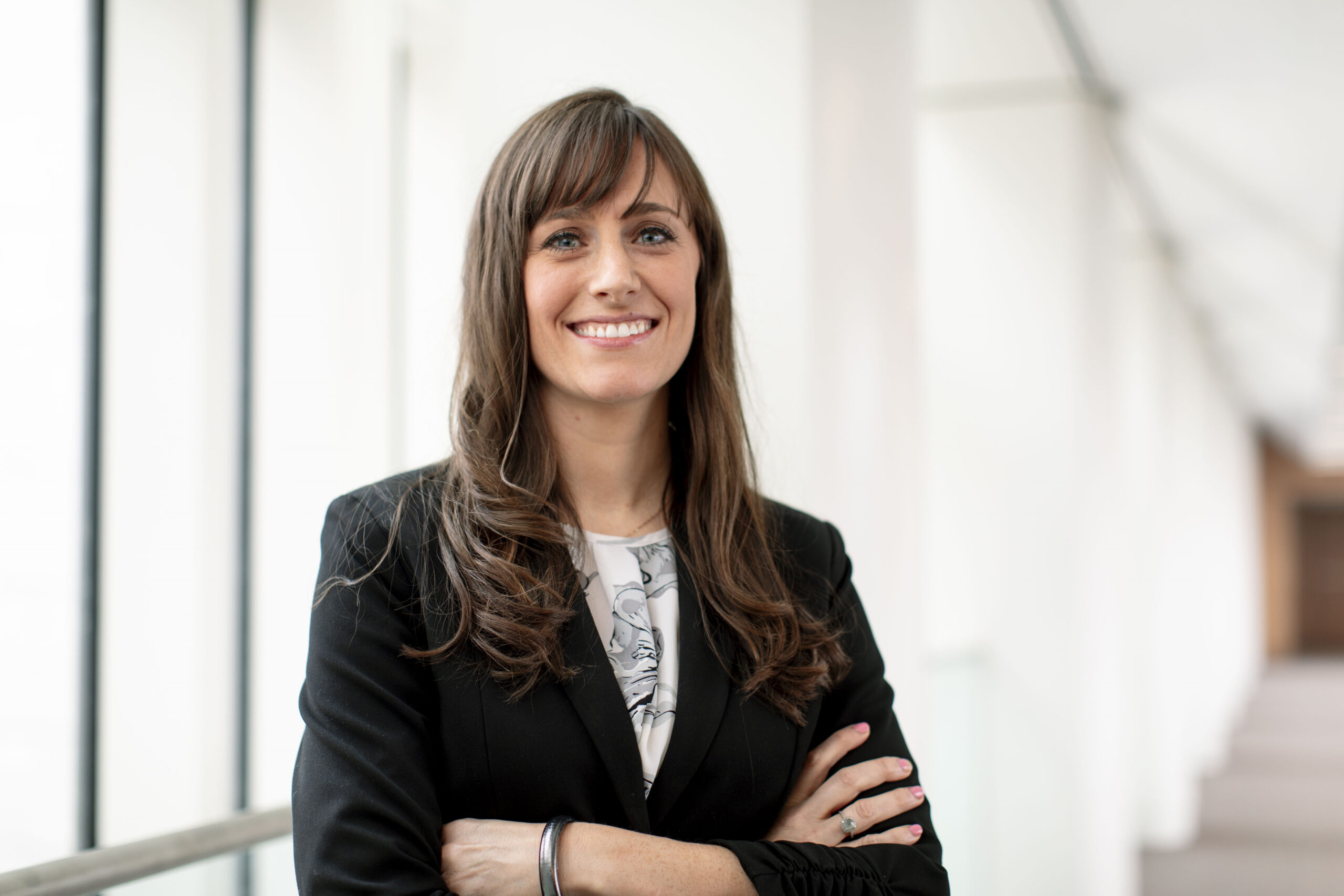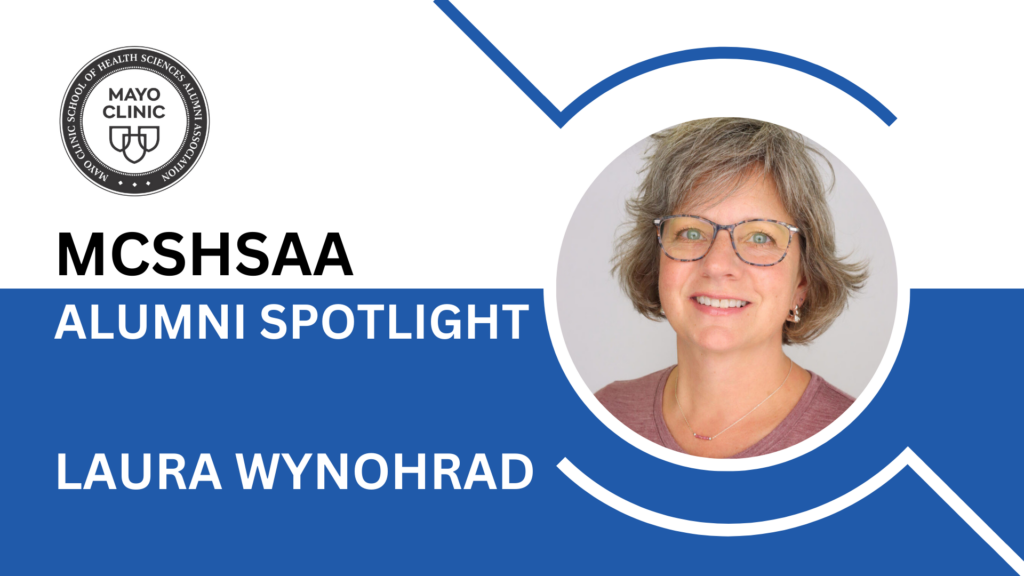Karen Lang, CMD, RTT (MDOS ’18), was a radiation therapist for nine years. She loved her career but wanted more. “I’ve always been interested in what goes on behind the scenes and wanted to know more about the big picture,” she says. “Why did the physician and medical dosimetrist pick this angle for the patient’s radiation?”
“I’m never bored. Every case is a puzzle, and I like puzzles! I love this career and feel very fortunate.”
Lang enrolled in the University of Wisconsin–La Crosse Medical Dosimetry Program affiliated with Mayo Clinic School of Health Sciences (MCSHS) in 2017. In fact, she was the first student to intern at Mayo Clinic. Students in the program start the didactic portion with the University of Wisconsin-La Crosse and then complete the 12-month clinical internship to fulfill the 16-month master’s degree program. The didactic work is online, and students in the UW-La Crosse program are spread around the U.S. Lang didn’t meet her classmates in person until graduation.
“As the first in Mayo’s program, I got to pave the way for the students who come after me,” says Lang. “Because I’d been a radiation therapist at Mayo and was doing my clinical internship at Mayo, I had access to vast resources, including a physicist around every corner.”
Medical dosimetry is a niche profession. Lang says there are only 78 certified medical dosimetrists in Minnesota – 24 of them at Mayo Clinic. That includes Lang, who works in the Department of Radiation Oncology at Mayo Clinic in Rochester.
Medical dosimetrists are the architects of planning for radiation therapy. The radiation oncologist prescribes and outlines the target area for radiation, and the medical dosimetrist designs and customizes the treatment plan for each patient, complete with beam angles and energy – the best option to deliver the target dose while limiting the dose to surrounding normal tissue. A medical physicist ensures the radiation plan is administered safely and accurately and a radiation therapist implements it.
Lang says the skill set for a medical dosimetrist includes math, physics and anatomy. “I’m never bored. Every case is a puzzle, and I like puzzles! I love this career and feel very fortunate.”
Lang has precepted the students who have come after her in the program and is now co-director of the MCSHS Medical Dosimetry Program and research adviser of the UW-La Crosse program.
“Radiation oncology is an ever-evolving field,” Lang says. “When I compare how things were when I started as a radiation therapy student in 2007 to how they are now, the field has completely changed. In 10 years, it will probably all be different again. As a result, you never get bored. It’s an innovative career, and I embrace the change and challenge.”





